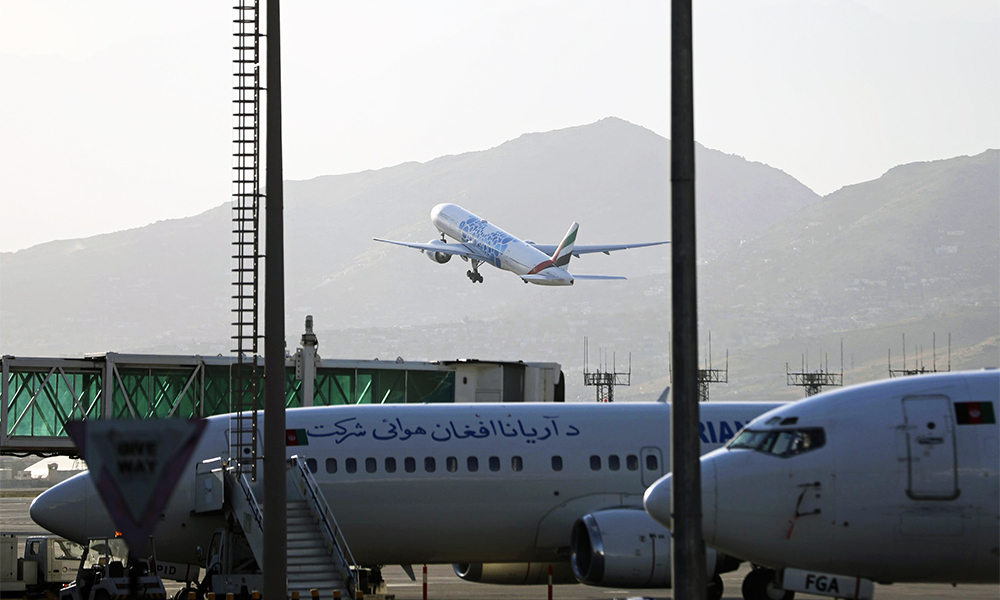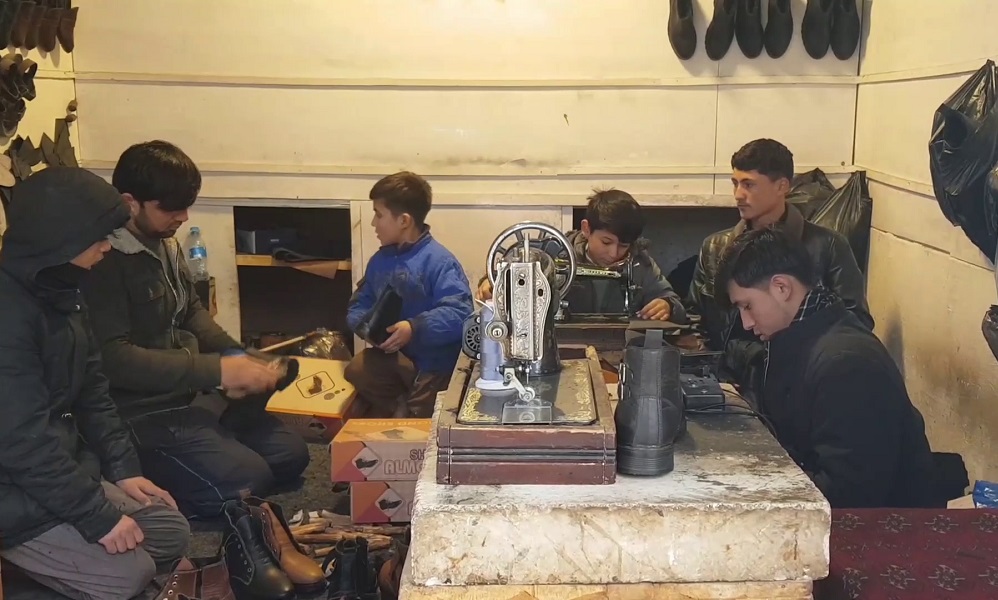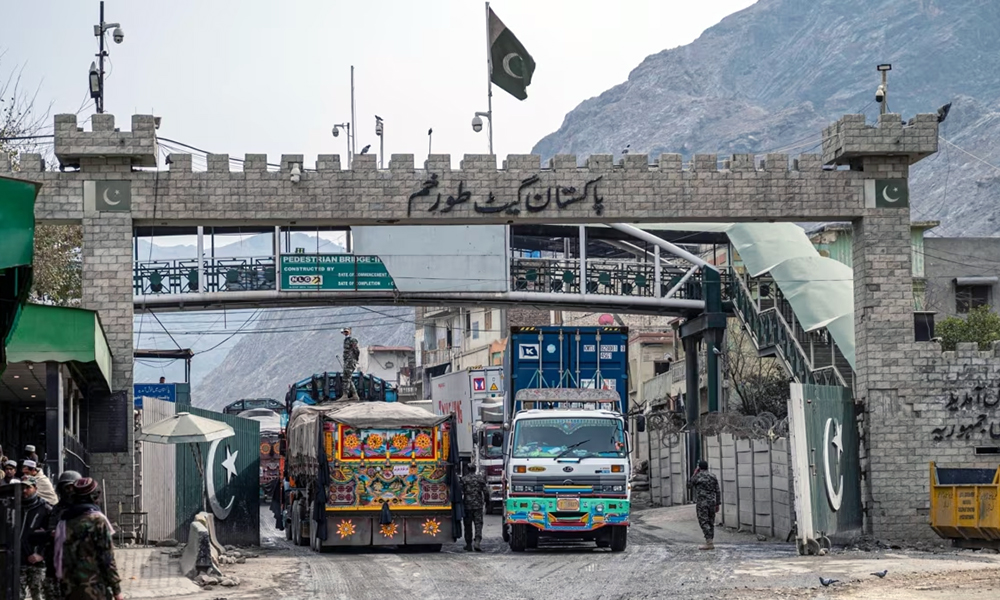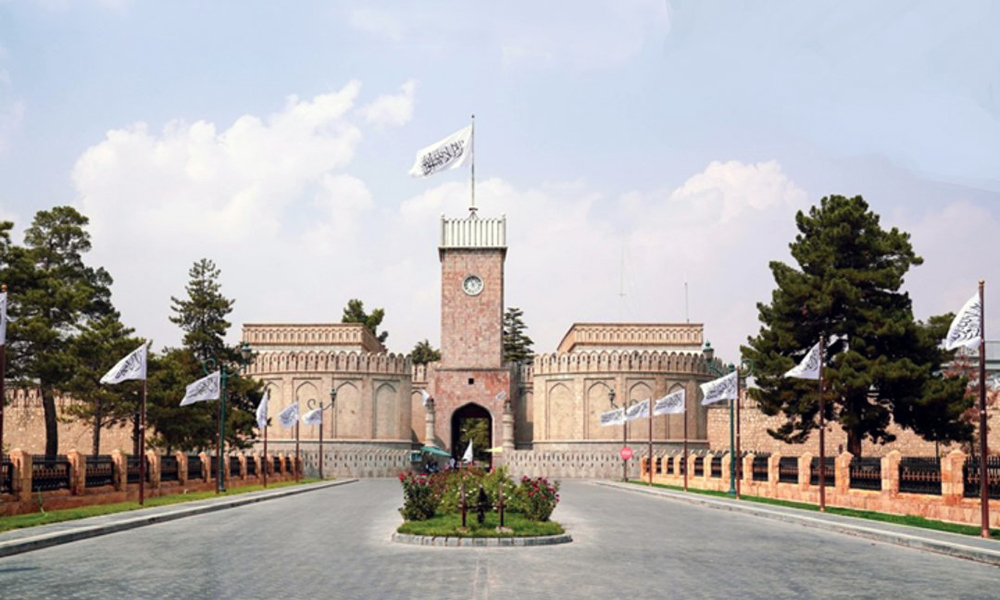Business
UAE set to run Kabul airport in deal with IEA: sources

The Islamic Emirate of Afghanistan (IEA), and the United Arab Emirates are poised to strike a deal for the Gulf nation to run Kabul airport and several others in Afghanistan that could be announced within weeks, according to sources familiar with the negotiations, Reuters reported.
According to the report the IEA, whose government remains an international pariah without formal recognition, have courted regional powers, including Qatar and Turkey, to operate Kabul airport, landlocked Afghanistan's main air link with the world, and others.
But after months of back-and-forth talks, and at one point raising the possibility of a joint UAE-Turkey-Qatar deal, the IEA is set to hand the operations in their entirety to the UAE, who had previously run Afghan airports, the sources said.
An agreement would help the IEA ease their isolation from the outside world as they govern an impoverished country beset by drought, widespread hunger and economic crisis. It would also hand Abu Dhabi a win in its diplomatic tussle with Qatar for influence, Reuter’s story read.
Under the deal with the UAE, Afghans will be employed at the airports, including in security roles, crucial for the IEA who want toshow they can create jobs but also because they staunchly oppose the presence of foreign forces, sources said.
According to Reuters an Emirati state-linked contractor had been contracted to provide security services, which should be announced soon, while negotiations over airspace management are ongoing, they said.
The IEA in May awarded the ground services contract to UAE state-linked GAAC, which was involved in running security and ground handling services at Afghan airports before the IEA takeover, shortly after IEA officials had visited Abu Dhabi.
Meanwhile, Qatar and Turkey's joint negotiations with the IEA broke down around the same time, sources said.
Emirati officials had no immediate comment when contacted by Reuters. GAAC did not respond to a request for comment.
An IEA transport ministry spokesman confirmed an aviation security contract had already been signed with the UAE but said the air traffic contract was not finalised or confirmed yet, Reuters reported.
There is little direct commercial benefit in the airport operations, but Kabul airport would provide a key source of intelligence on movements in and out of the country, Western officials say.
The sources said UAE airlines, which have not flown to Afghanistan since the IEA takeover last year, were expected to resume flights to Kabul and possibly other Afghan airports after the deal was finalized, read the report.
Other airlines, who too have stayed away, could also again operate flights if the UAE deal can address substantial security concerns, including the threat posed by the Afghan branch of the Islamic State whose targets have included the IEA.
In the months leading up to the ground services being awarded to the UAE, the IEA repeatedly made unexplained changes to its team negotiating with Qatar and Turkey, the sources said.
Then the IEA sought to alter agreed terms by upping airport fees and taxes and weaken Qatar and Turkey's control over revenue collection, they added.
A Qatari official had no immediate comment when contacted by Reuters. A Turkish official, speaking on condition of anonymity, confirmed talks with the IEA had stopped "some time ago".
The UAE'S efforts are part of a quiet but assertive push by Abu Dhabi to expand longstanding ties with the IEA that have included government aid and diplomatic efforts in the months since the IEA took power in August.
Western officials say Abu Dhabi sees Afghanistan, which shares a large land border with UAE's Gulf neighbour Iran, as part of its wider backyard and so believes it has legitimate interests in the country's political and economic stability, Reuters reported.
But those officials also say the UAE is keen to counter the influence in Afghanistan of Qatar, a Gulf state lauded by Western nations for serving as gateway to the IEA but a rival of Abu Dhabi's in a contest for regional influence.
Western officials worry that rivalry is now playing out in Afghanistan. The UAE, along with Saudi Arabia, Egypt and Bahrain, cut ties with Qatar from 2017 until 2021 as part of a long-running, bitter dispute between the two rich Gulf states that was largely resolved last year.
Qatar has hosted the IEA's political office in Doha, long one of few places to meet the IEA and where the United States negotiated with the IEA to withdraw from Afghanistan.
Qatar also helped run Kabul's Hamid Karzai International Airport after the collapse of the Western-backed government last year. Its state-owned Qatar Airways operated charter flights and Qatari special forces provided security on the ground.
But Qatar's relationship with the IEA now appears strained, according to Western officials who say the IEA have become wary of being too dependent on any one nation.
Business
Shoemaking industry in Takhar province facing stagnation

A number of shoemakers in northern Takhar province say that while their handmade shoes are of better quality than imported shoes, but still sales are down.
According to them, there were more than 20 shoe-making shops in the past, but now some have been closed due to the decline in sales.
The shoemakers make most of their shoes from leather. A number of industrialists say that this industry is now facing stagnation.
Abdul Raqib, a shoemaking factor owner, said: “The government should support us. Currently, we import soles. It can be made with good quality in Afghanistan, and we could even compete against Turkish shoes.”
Meraj, another shoemaking factory owner, said: “Shoe sales were higher in the republic era. There were military shoes. Sales have declined now, but we still thank Allah.”
Shoemakers make these shoes with basic tools and by hand, with 5 to 8 people working in each shop.
Javed, a shoemaker, said: “Our sales are not so good. We can make any type of shoe or slipper. We want the government to support us.”
A number of Takhar residents say that domestically produced shoes are of high quality and with lower price compared to imported shoes, so people prefer domestic products to foreign products.
Mir Ata, a resident of Takhar, said: “We are very happy about domestic shoes. People should buy it. They are of good quality.”
However, the officials of Takhar Industry and Commerce Department say that they are committed to support the industrialists.
Abdul Rahman Ghaznawi, provincial director of industry and commerce, said: “People prefer domestic shoes and slippers. Takhar’s products are sold in Kunduz, Baghlan and Badakhshan as well.”
Meanwhile, industrialists say that if the government supports them, they will be able to make the best products and can be more competitive.
Business
Daily truck clearances at Torkham drop from 400-500 to 5-10

Pakistan’s Sarhad Chamber of Commerce and Industry (SCCI) has said that daily truck clearances at Torkham crossing have declined from 400-500 to 5-10.
SCCI President Fazal Muqeem Khan said this at the signing ceremony of a memorandum of understanding (MoU) with the Pakistan-Afghanistan Joint Chamber of Commerce and Industry to promote bilateral trade and cooperation.
He said the volume of trade between Pakistan and Afghanistan had fallen from $3 billion to $1 billion annually.
Fazal Muqeem also highlighted the adverse impact of the 2% Infrastructure Development Cess (IDC) imposed by the Khyber-Pakhtunkhwa government on trade and transit.
Business
Turkish scholars, charity officials assess investment prospects in Afghanistan
Officials pledged to encourage Turkish investors to explore and capitalize on investment opportunities in Afghanistan

Afghanistan’s Acting Minister of Energy and Water, Mullah Abdul Latif Mansoor, met with a delegation of Turkish scholars and officials from the Adif Charity Foundation on Tuesday to discuss various political, religious, and social issues.
According to the Ministry of Energy and Water, Mullah Mansoor praised Adif’s humanitarian efforts in Afghanistan and highlighted the country’s ample resources for energy production.
He emphasized that Afghanistan currently offers a favorable environment for investment in all sectors, assuring the Turkish delegation of the Islamic Emirate’s commitment to ensuring the safety and security of investors and their assets.
In response, Adif officials pledged to encourage Turkish investors to explore and capitalize on investment opportunities in Afghanistan, signaling a potential boost in economic and developmental cooperation between the two nations.
-

 Sport4 days ago
Sport4 days agoZimbabwe’s opening ODI against Afghanistan abandoned
-

 World3 days ago
World3 days agoNorth Korean troops suffer 100 deaths, struggling in drone warfare, South Korea says
-

 Latest News2 days ago
Latest News2 days agoAfghan men must stand with women to support viable future of country: US envoy
-

 Latest News3 days ago
Latest News3 days agoTwo horror accidents on Kabul-Kandahar highway leave 52 dead
-

 Sport3 days ago
Sport3 days agoAfghanistan crush Zimbabwe by 232 runs in second ODI
-

 International Sports4 days ago
International Sports4 days agoLanka T10: Kandy Bolts in at 4th spot in playoffs after thrilling day
-

 Regional4 days ago
Regional4 days agoIran’s president to make rare visit to Egypt for D-8 summit
-

 Tahawol5 days ago
Tahawol5 days agoTahawol: Latest developments in Syria reviewed
























